This opinion piece by the Bar Area Reporter published on June 5, 2019 highlights key features of Cuba’s current state and continuous fight for solidarity:
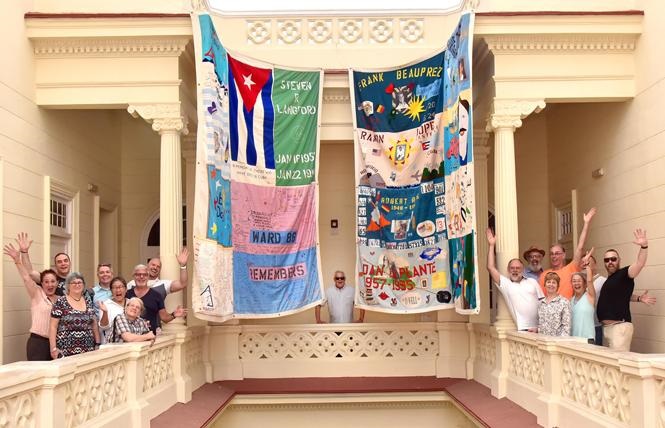

This opinion piece by the Bar Area Reporter published on June 5, 2019 highlights key features of Cuba’s current state and continuous fight for solidarity:
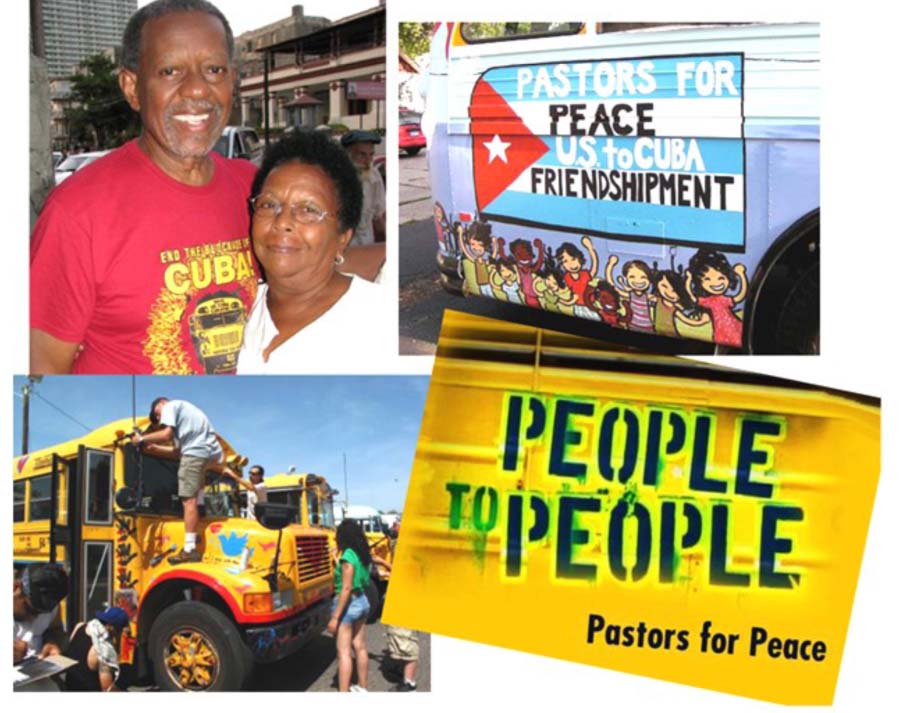
We provide links to articles published on Trump’s recent efforts to decimate Cuba’s economic prosperity. The following overview the current state of the Western Hemisphere and the US’ involvement:
prweb.com published June 6, 2019: https://www.prweb.com/releases/medicc_decries_added_us_restrictions_for_travel_to_cuba/prweb16361650.htm
Chicago Tribune article published June 5, 2019: https://www.chicagotribune.com/columns/steve-chapman/ct-perspec-chapman-mexico-tariffs-cuba-venezuela-trump-20190605-story.html
Commondreams.org published on June 5, 2019: https://www.commondreams.org/views/2019/06/05/travel-cuba-falls-victim-john-boltons-wrath
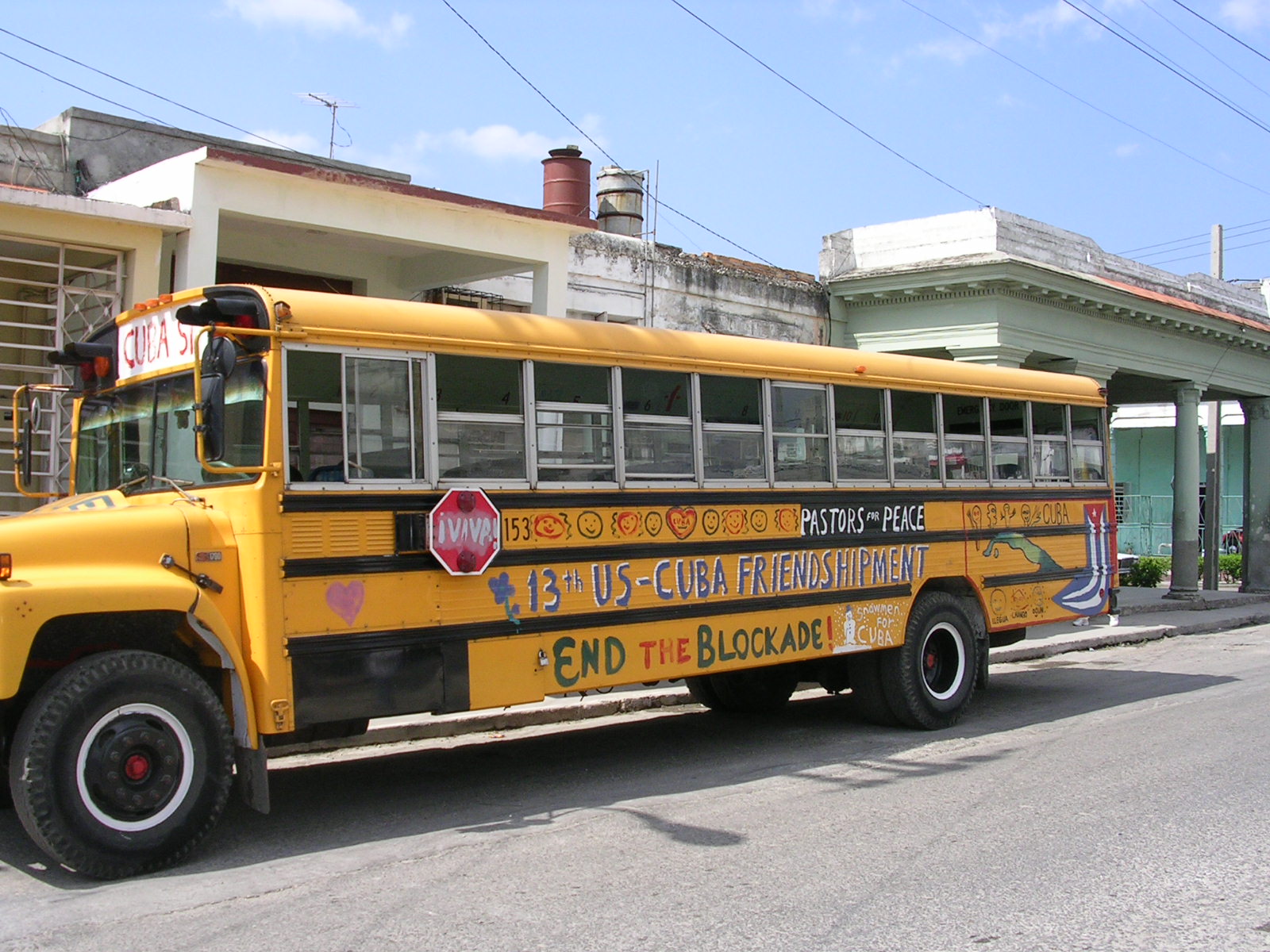
Trump’s recent restrictions on U.S. travel to Cuba have many implications, and the elimination of the group people-to-people educational travel has serious consequences on the private sector workers. Learn about the affects from an article published by voanews.com on June 5, 2019:
https://www.voanews.com/a/trump-s-cruise-ban-hits-cuba-s-private-sector-workers/4947872.html
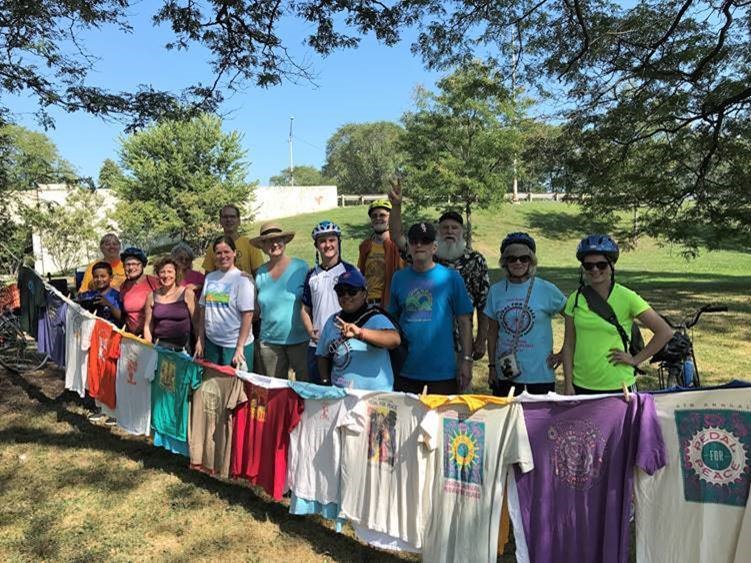
Sponsors and Beneficiaries:
To donate to a beneficiary group, click on it’s name above, or send a check made out to CRLN and with the name of the beneficiary group in the memo line to CRLN, 4750 N. Sheridan Rd., Suite 429, Chicago, IL 60640-5078.
If you are a biker and would like to collect checks rather than fundraise online, scroll down this page to print off and use the pledge form below. You will still need to register online, but you can use the “pay later” option and mail your check to CRLN. Put “Pedal for Peace registration” in the memo line.
Schedule and Route
1:00 Gather and Ride!
Meet at the table at the main event site in the field just south of the clocktower at Waveland Ave. and the lakefront or at the table at the Dog Water Station (55th Street and Lakefront Bike Path) to sign a waiver form. Choose the 12- or 24-mile loop and ride along the beautiful Chicago Lakefront Bikepath.
3:30 Fiesta & Program!
Relax, enjoy food and conversation at the main site (Grove 13) and stay for a short program.
Riders Receive: Refreshments on the ride, food at the post-pedal fiesta, and a free T-shirt!
Registration Fees: Please register online at this site and indicate the t-shirt size you’d like. Registration fee options:
$10 student/low income; $15 after September 6, 2019
$20 adult; $25 after September 6, 2019
Children 12 and under free
There is an option on the site to mail a check to CRLN. If you choose this option, please select your t-shirt size.
Bring with you: bike, helmet, cell phone, collected pledges
Parking: Parking is available in the Park District lot next to the field below the Waveland Clock Tower.
Please note that you will need to use the ParkMobile Pay by Phone service to pay for parking– no other phone payment app will work, including ParkChicago used for City street parking. For more information on how to Pay by Phone at this parking lot, click here.
_ _ _ _ _ _ _ _ _ _ _ _ _ _ _ _ _ _ _ _ _ _ _ _ _ _ _ _ _ _ _ _ _ _ _ _ _ _ _ _ _ _ _ _ _ _ _ _ _ _ _ _ _ _ _ _ _ _ _ _ _ _ _ _ _ _ _ _
If you cannot ride but would like to support Pedal for Peace in other ways, please send an email by September 9, 2019, to shunter-smith@crln.org with your name, email address, phone number and which of the following ways you would like to volunteer:
Pledge Form
Sponsor’s Name Address City , State, Zip Total Pledged
___________________________________________________________________________________________
___________________________________________________________________________________________
___________________________________________________________________________________________
___________________________________________________________________________________________
___________________________________________________________________________________________
___________________________________________________________________________________________
___________________________________________________________________________________________
___________________________________________________________________________________________
___________________________________________________________________________________________
___________________________________________________________________________________________
___________________________________________________________________________________________
___________________________________________________________________________________________
___________________________________________________________________________________________
___________________________________________________________________________________________
___________________________________________________________________________________________
Send any pledges collected after the event to: CRLN, 4750 N. Sheridan Road, Suite 429, Chicago, IL 60640 by October 9.
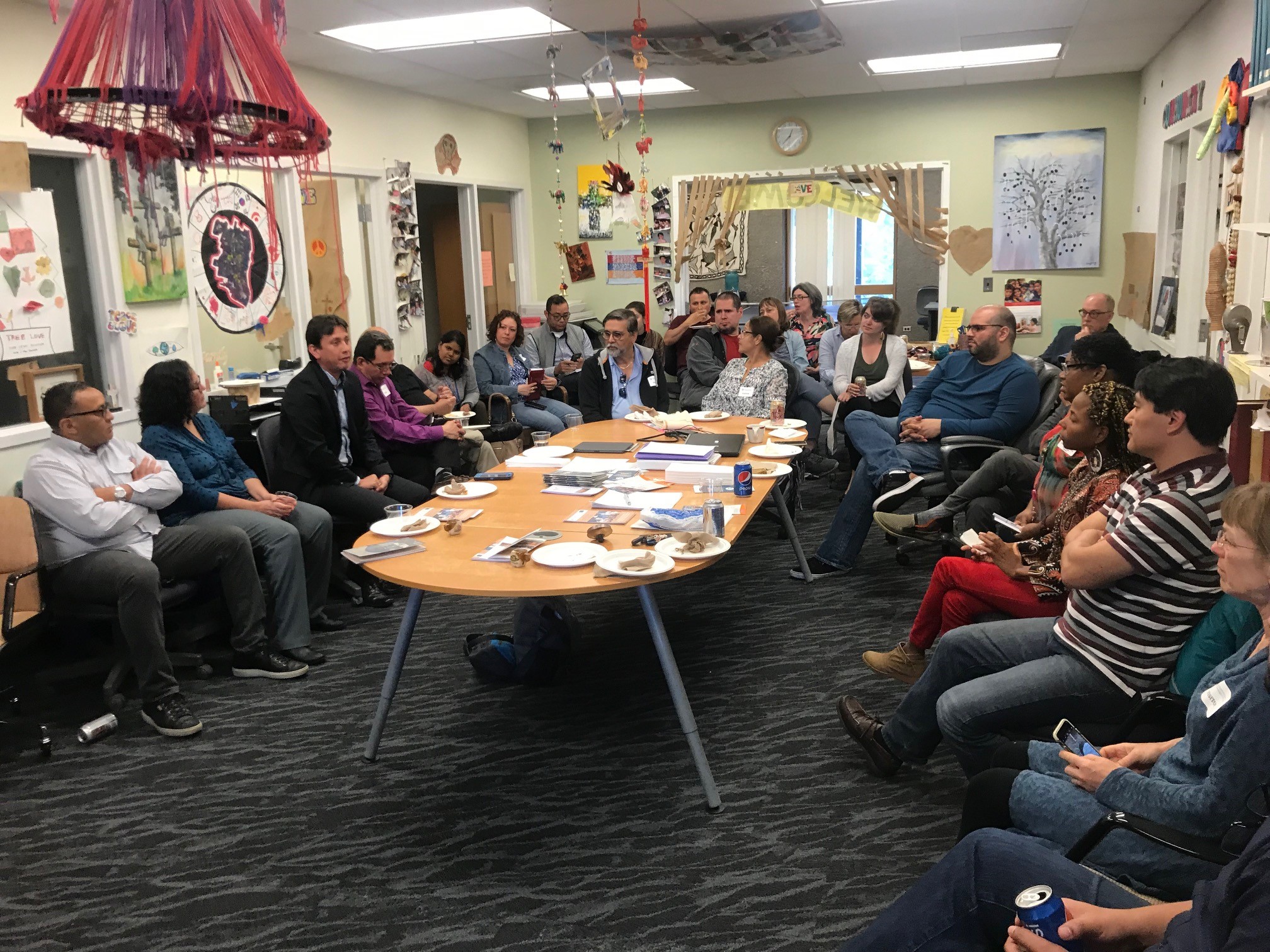
On Monday, June 2, 35 people gathered at the Lutheran School of Theology in Chicago (LSTC) to share lunch and dialogue with Milton Mejía, General Secretary and President of the Latin American Council of Churches; Atahualpa Hernández, Bishop of the Evangelical Lutheran Church in Colombia; and Nidiria Ruíz Medina, an African-descended community organizer, land defender, and women’s peace activist from the Naya River area in Cauca, Colombia. The event was sponsored by LSTC, CRLN, and McCormick Theological Seminary.
The guests asked those gathered to get involved in advocacy efforts to rally support by the U.S. government for implementation of the Colombian Peace Accords. They also encouraged U.S. church members to restart the Days of Prayer and Action for Colombia, join accompaniment missions to seek to protect human rights defenders, and to find other ways to work for peace and reconciliation in Colombia.
Their message was sobering. While Peace Accords were signed by the Colombian government and the guerilla group FARC in November 2016 and later ratified into law, the government has not complied with its obligations under the Accords. FARC members were supposed to receive housing, education, and jobs to reintegrate them into society, but the current administration is reneging on those promises. In addition, the government was supposed to provide resources to encourage rural people to stop growing coca and start growing other crops. Instead, the U.S. has pushed the Colombian government to restart fumigation of coca crops first, without providing alternative means for families to earn an income and survive.
Finally, and most seriously, human rights violations, including assassinations, have actually increased. Since the peace deal was signed, around 700 activists and community leaders have been killed, and more than 210,000 people displaced from their homes amid the continuing violence. Thousands more have received credible threats against their lives, including Nidiria, who expressed some fear about returning to Colombia after receiving threats a couple of weeks ago.
Nidiria said that much of the violence happens in order to displace people from their lands, either so that large corporations or large landowners can increase their landholdings or so that narcotraffickers can have unimpeded access to their routes. Violence is also used to terrorize the population, so that people will not raise their voices to call for needed changes in social conditions.
The 3 spoke in New York and Washington, DC, before coming to Chicago.
Join Rev. Milton Mejía, President and General Secretary of the Latin America Counsel of Churches, and Rev. Atahualpa Hernández, President of the Evangelical Lutheran Church of Colombia, for lunch and dialogue about the current situation in Colombia. What can churches do to promote peace and reconciliation in Colombia?
Date: Monday June 3rd, 2019
Time: 12 Noon
Location: Lutheran School of Theology at Chicago – 1100 E 55th St, Chicago, IL 60615.
Check at Main Desk for Room Number
RSVP to shunter-smith@crln.org
Co-sponsored by Lutheran School of Theology at Chicago, McCormick Theological Seminary, and CRLN.
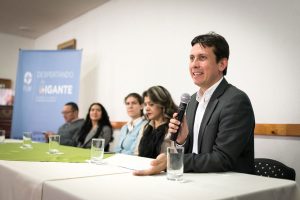 Rev. Atahualpa Hernández
Rev. Atahualpa Hernández
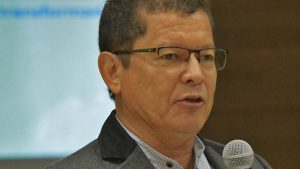 Rev. Milton Mejía
Rev. Milton Mejía
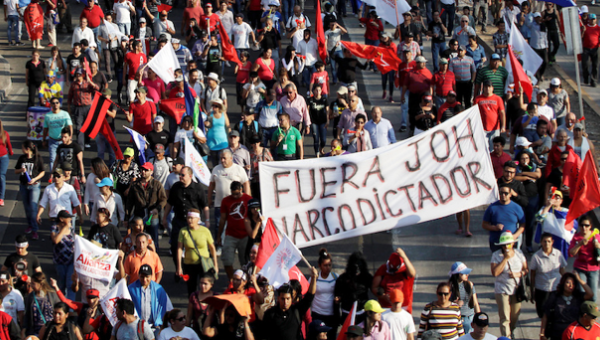
Enough is Enough — Stop all US and Canadian support for dictatorship in Honduras. Support the Honduran people in resistance. Call and/or email your Congress Representative, Senator or Parliamentarian today (May 31). Tell them you want them to take a position against the human rights violations in Hondurans and against US funding and support for Honduran security forces that are being used against the people.
Click for Info on Senators Click for House of Representatives
The Honduran people are in the streets by the thousands again facing US financed, armed and trained Honduran Police and Military. A two day national action and strike for May 30-31 was originally called as a protest in defense of public education and public health in the face of new attacks on public services by the regime of Juan Orlando Hernandez (JOH). Today’s protests covered the entire country and not only defended public services but once again called massively for the end of the illegitimate government of JOH — a government that has been imposed and sustained by US and Canadian support. There are marches, highway take-overs in the rural areas, occupations of public schools by parents and students, mobilizations of teacher and health care worker unions, campesinos, indigenous communities, taxi drivers and university students. The protests are becoming a non-violent uprising of the people against the dictatorship but are being met with violence, tear gas and live ammunition from the regime. One teacher was assassinated in his home the night before these national actions began, another teacher and a student were wounded today by police.
Since the most recent electoral crisis of November 2017 in which JOH was imposed on the people through fraud and violence, security forces have killed more than 20 people and many more, including at least 15 ? journalists have been assassinated by death squad style killings. Since the 2009 coup, also heavily backed by the US and Canada, hundreds of Hondurans have been killed by security forces and paramilitary type groups. Many hundreds more have been killed by narcotics cartel linked violence while the ruling party politicians, including JOH himself and his brother have been either charged or are under investigation for being part of the narcotics cartels. Link to article
Enough is Enough — Stop all US and Canadian support for dictatorship in Honduras. Support the Honduran people in resistance. Call your congress representative, Senator or Parliamentarian today (May 31).
Click for Info on Senators Click for House of Representatives
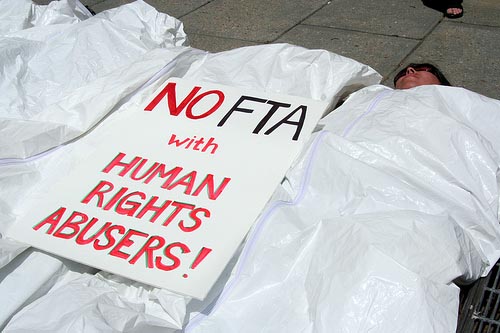
A scope of the Peace Accord along with the policy implications are weighed in the New York Times Article published on May 17, 2019:
Colombia’s Peace Deal Promised a New Era. So Why Are These Rebels Rearming?
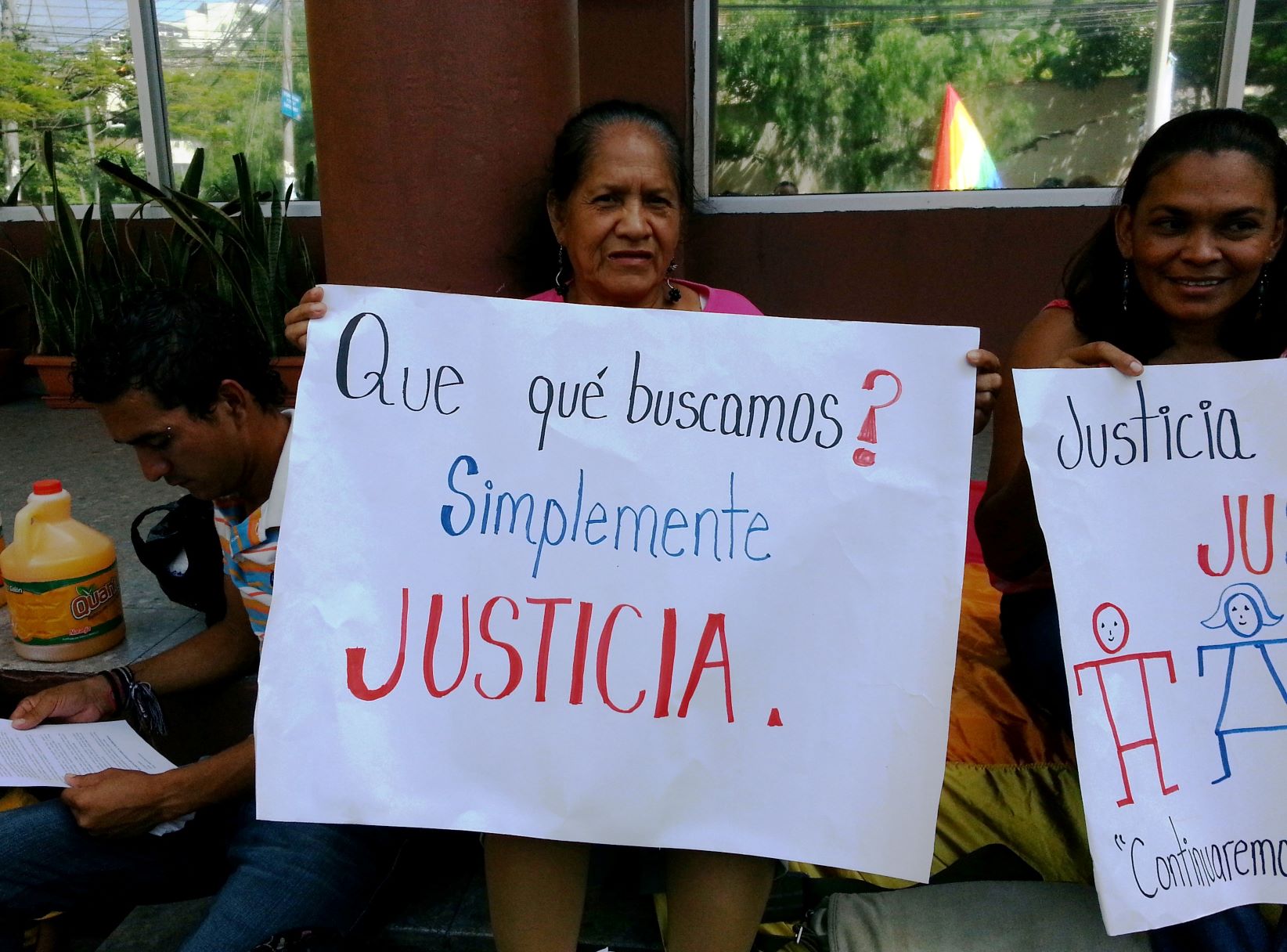
Learn about the deteriorating rights for Colombian workers and Trade Unionists through an article published by The American Federation of Labor and Congress of Industrial Organizations on May 16, 2019:
https://aflcio.org/2019/5/16/murdered-trade-unionists-truth-behind-colombias-trade-agreement
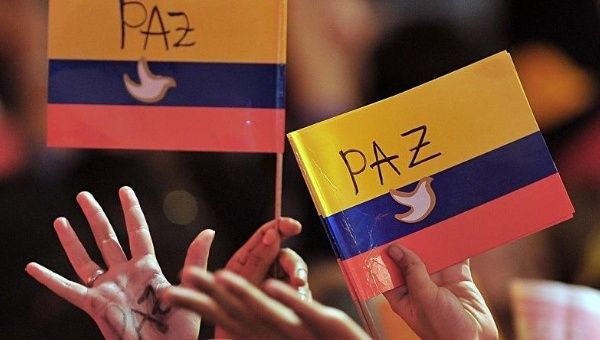
Find an update on Colombia’s Peace Accord from this New York Times article published on May 23, 2019:
https://www.nytimes.com/2019/05/23/opinion/colombia-peace-agreement.html